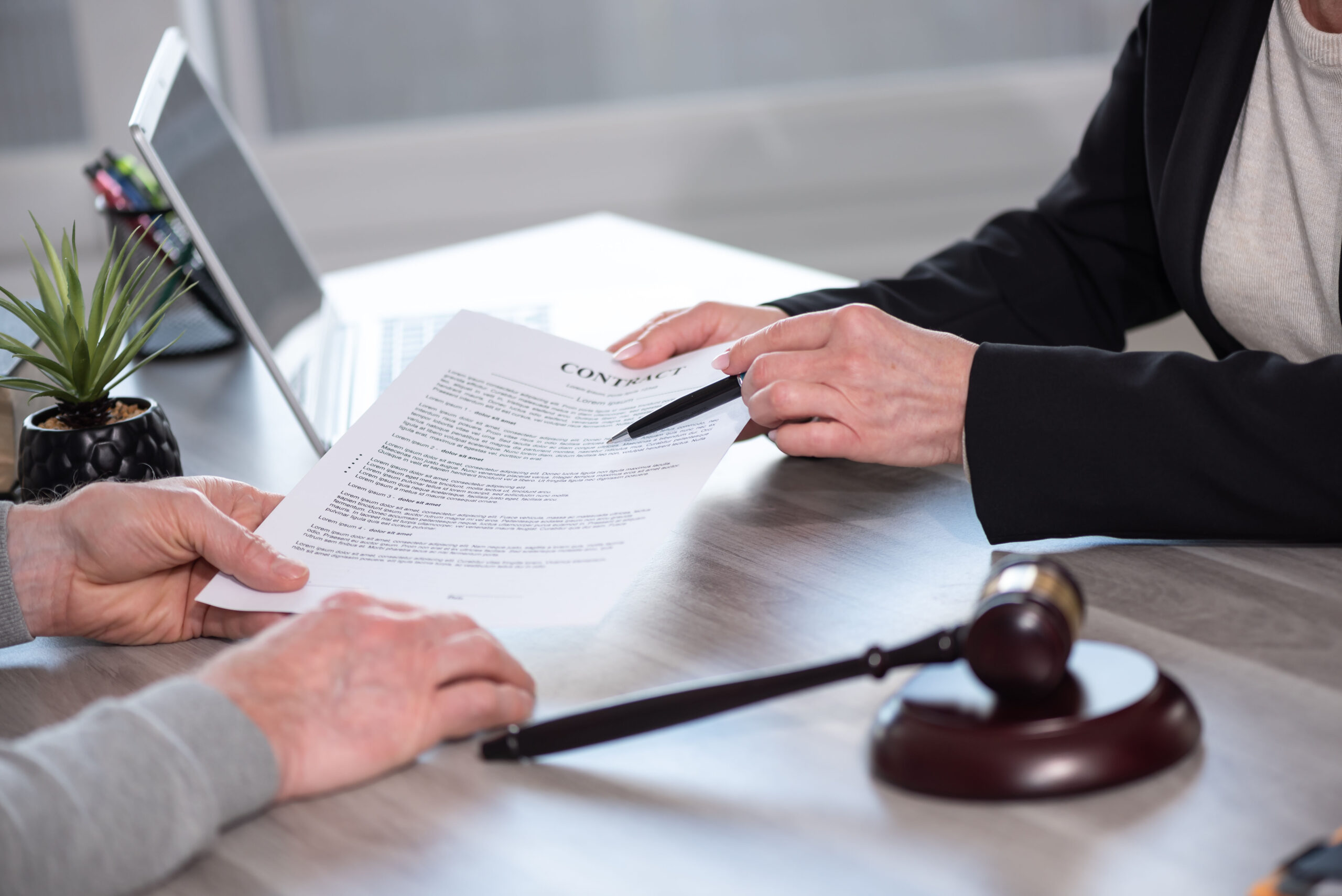What Does a Criminal Defense Lawyer Do?

You’re sitting at the defendant’s table, staring down charges that could flip your world upside down. That’s where a Van Nuys criminal defense lawyer steps in—not just to argue your case but to level the playing field. From challenging shaky evidence to fiercely defending your rights, they are the buffer between you and a system that doesn’t always play fair.
If criminal charges threaten your freedom, call The Rodriguez Law Group at (213) 995-6767 for an experienced defense team ready to fight for you.
Initial Consultation and Client Onboarding
The first moments after criminal charges come down feel like a pressure cooker. Questions swirl—what’s next? Is there a way out? This is where the initial consultation comes into play, setting the stage for everything that follows.
Listening to Your Side
The first priority for any defense attorney is simple: listen. Every case has a story behind it, and the details can mean the difference between a dismissal and a conviction. Whether it’s a heated misunderstanding or a complex legal bind, your lawyer wants every scrap of information you have. They’ll ask pointed questions about the incident, the arrest, and the events leading up to the charges. Once we’ve laid the groundwork, we’ll then spot potential inconsistencies in the prosecution’s case.
Identifying Immediate Needs
Some cases don’t allow for a slow build. Bail hearings, protective orders, or urgent motions might require immediate action. For example, in California, Penal Code §1275 allows attorneys to challenge unfair bail amounts during initial hearings. These early decisions directly impact how much freedom you’ll have while your case unfolds.
Setting Expectations
A good defense lawyer doesn’t sugarcoat reality. They’ll lay out possible outcomes based on the charges and the evidence, from dismissal to plea deals to a full trial. This isn’t about scaring you—it’s about preparing you. Knowing what’s ahead ensures that no plea offer or courtroom curveball takes you by surprise.
Establishing Confidentiality
Anything you share with your lawyer stays between you and them. This is a legal guarantee under attorney-client privilege, protected by California Evidence Code §954. Your lawyer’s job is to make sure you feel comfortable speaking freely, knowing those details won’t end up in the wrong hands.
Investigating the Case

Once the foundation is set, it’s time to dig deeper. A solid defense doesn’t rely on guesswork; it thrives on hard facts, sharp analysis, and uncovering the details that others might miss.
Building the Evidence Portfolio
The prosecution doesn’t have a monopoly on evidence. Your defense attorney will methodically gather documents, records, and tangible items to construct your case. This includes everything from police reports to CCTV footage, along with any personal records that could bolster your defense. In California, discovery rules under Penal Code §1054 ensure both sides exchange relevant evidence, but defense attorneys don’t wait for the prosecution—they hunt for their own leads.
Witness Interviews
Witnesses shape the narrative in court, but their accounts rarely tell the full story on paper. A defense attorney interviews potential witnesses, whether they support your case or pose a risk to it. For supportive witnesses, their statements may provide exculpatory evidence—information that can cast doubt on your guilt. Adverse witnesses get a different treatment: their testimony is scrutinized for contradictions, biases, or motives that might weaken their credibility.
Fact-Checking the Prosecution
It’s no secret that prosecution evidence isn’t infallible. Police reports might contain errors; forensic evidence might be mishandled. Defense attorneys carefully dissect the prosecution’s case to identify missteps.
For instance, in DUI cases, a flawed chain of custody for blood alcohol samples could render them inadmissible. When law enforcement cuts corners, defense attorneys use those mistakes to their client’s advantage.
Engaging Expert Witnesses
Sometimes, a case demands expertise beyond the courtroom. Forensic specialists, psychologists, and digital analysts provide insights that counter the prosecution’s claims.
Types of Expert Witnesses
- Forensic Experts: Specialists in areas like DNA analysis, ballistics, and fingerprint examination. They scrutinize physical evidence to identify inconsistencies or alternative explanations. For instance, a forensic pathologist might determine a cause of death that contradicts the prosecution’s claims.
- Psychologists and Psychiatrists: These experts assess a defendant’s mental state, providing testimony that may support defenses like insanity or diminished capacity. Their evaluations can influence sentencing by highlighting mitigating factors.
- Digital Forensics Analysts: In an era where digital evidence is prevalent, these professionals examine electronic data to uncover tampering, authenticate communications, or trace cyber activities. Their analysis can reveal whether incriminating emails were fabricated or if location data aligns with the alleged crime scene.
Legal Representation and Advocacy
The courtroom is where defenses come alive. It’s not just about what you say but how you say it—and knowing when to strike or sit back. Advocacy is a blend of preparation, strategy, and an unflinching defense of the client’s rights at every stage of the legal process.
Filing Pre-Trial Motions
Long before a jury takes their seats, pre-trial motions shape the battlefield. These motions give your attorney the chance to challenge evidence, dismiss charges, or even pressure the prosecution into dropping the case altogether. In California, Penal Code §1538.5 allows defense attorneys to file motions to suppress evidence obtained through illegal searches or seizures. A successful motion here can cripple the prosecution’s case before it ever gets rolling.
Other common pre-trial motions include:
- Motion to Dismiss: Argues that the evidence doesn’t support the charges.
- Motion to Compel Discovery: Forces the prosecution to disclose evidence they’ve withheld.
- Motion in Limine: Limits what the jury hears, excluding prejudicial or irrelevant information.
These motions serve one goal: to give you every possible advantage before trial begins.
Negotiating Plea Bargains

Not every case heads to trial. Sometimes, a negotiated plea serves your best interests, reducing charges or penalties in exchange for admitting to lesser offenses. This isn’t about admitting defeat—it’s about strategy. For instance, pleading to a misdemeanor under Penal Code §415 (disturbing the peace) might spare you the harsher consequences of a felony conviction.
The art of negotiation comes down to leverage. Your attorney uses flaws in the prosecution’s case—shaky witnesses, questionable evidence, or procedural missteps—to push for better terms. If the prosecutor knows their case is weak, they’re more likely to deal.
Representing the Client During Trial
When plea deals fall short or justice demands a fight, the trial begins. Defense attorneys control the courtroom narrative by dismantling the prosecution’s case piece by piece.
Key trial responsibilities include:
- Opening Statements: Setting the tone, framing the defense’s theory, and planting doubt in the jury’s minds.
- Cross-Examinations: Highlighting inconsistencies, biases, or outright falsehoods in witness testimony.
- Presenting Evidence: Introducing physical evidence, documents, or expert opinions that challenge the prosecution’s narrative.
- Closing Arguments: Tying everything together, emphasizing the prosecution’s burden to prove guilt beyond a reasonable doubt.
This part of the process is as much about psychology as it is about the law. Jurors respond not just to facts but to the way those facts are delivered. The best defense attorney reads the room, adapts their tone, and connects with jurors on an emotional level.
Protecting the Client’s Rights
Throughout the trial, your lawyer stays vigilant for procedural violations or prosecutorial misconduct. For example, introducing evidence outside the scope of discovery—or making prejudicial statements—violates your rights under the Sixth Amendment. Defense attorneys call out these tactics immediately, preserving objections for appeal if necessary.
Sentencing and Post-Trial Support
Even when a trial ends, the story doesn’t stop there. Whether it’s working to soften the blow of a sentence or fighting to correct a miscarriage of justice, the role of a defense attorney evolves once the verdict is in.
Advocating for Mitigated Sentencing
A conviction doesn’t automatically mean the harshest penalty. Defense attorneys step up during sentencing hearings to argue for reduced penalties, alternative sentences, or rehabilitative options. They highlight mitigating factors—like a client’s clean prior record, remorse, or efforts at rehabilitation. In California, Penal Code §1203 provides for probation in certain cases, allowing individuals to avoid prison time altogether.
Creative solutions also come into play. Community service, enrollment in treatment programs, or house arrest can replace traditional incarceration. These alternatives not only lessen the punishment but also focus on meaningful rehabilitation over strict penalties.
Filing Appeals
If a trial results in an unjust conviction, the appeals process becomes the next battlefield. Appeals focus on legal errors, judicial misconduct, or new evidence that undermines the original verdict. In California, the process begins with filing a notice of appeal under the California Rules of Court, Rule 8.100.
Defense attorneys meticulously review trial transcripts to identify issues like:

- Improper jury instructions
- Admission of illegally obtained evidence
- Prosecutorial misconduct
- Ineffective assistance of prior counsel
Once an appellate court agrees to hear the case, the lawyer submits a written brief detailing these errors and argues why they justify reversing the conviction or modifying the sentence.
Post-Conviction Relief
For clients seeking a fresh start, post-conviction relief offers a path forward. This might involve expungement of criminal records under Penal Code §1203.4, which allows certain convictions to be dismissed after completing probation. While expungement doesn’t erase the record entirely, it removes barriers to employment, housing, and other opportunities.
In some cases, clients qualify for certificate of rehabilitation programs, a stepping stone toward a pardon. Defense attorneys guide clients through these processes, ensuring they meet all eligibility requirements and deadlines.
Providing Long-Term Guidance
A conviction impacts life beyond the courtroom. Defense attorneys help clients address practical challenges, such as reinstating driver’s licenses, understanding probation terms, or complying with sex offender registration laws like Penal Code §290.
Additional Responsibilities
Beyond courtrooms and legal filings, criminal defense attorneys take on a range of general responsibilities that ensure clients receive comprehensive representation.
Keeping Clients Informed
Communication doesn’t stop after the first consultation. A defense attorney keeps clients updated on every twist and turn in their case. Whether it’s a court date, a new piece of evidence, or the outcome of a motion, clients deserve to know what’s happening. California’s ethical rules for attorneys, codified in the California Rules of Professional Conduct Rule 1.4, mandate timely updates and transparent communication.
A strong attorney-client relationship thrives on trust, and trust comes from clarity. When a client fully understands their case’s status, they make better decisions—and feel more confident about the road ahead.
Upholding Ethical Standards
Defense attorneys must operate within a strict ethical framework while zealously advocating for their clients. This means walking the line between aggressive defense strategies and respect for the rule of law. For example:
- Attorneys cannot knowingly present false evidence or encourage perjury.
- They must respect court procedures and avoid tactics designed purely to delay proceedings.
- They must act in their client’s best interests without compromising professional integrity.
Staying Ahead of the Law
Laws evolve, and a good defense attorney evolves with them. By staying current on new rulings, statutory changes, and emerging legal trends, attorneys sharpen their ability to defend clients effectively. For instance, recent changes to California sentencing laws under Senate Bill 81 provide new avenues for arguing against certain sentencing enhancements, especially those deemed unjust or disproportionate.
Providing Emotional Support
Facing criminal charges is an emotional rollercoaster. Defense attorneys often provide stability, helping clients process fear, frustration, and uncertainty. While lawyers aren’t therapists, their ability to provide reassurance can make an enormous difference during stressful times.
Protect Your Rights with The Rodriguez Law Group

Ambrosio E. Rodriguez, Van Nuys Criminal Defense Lawyer
The legal system isn’t built to go easy on you—but that’s why we’re here. At The Rodriguez Law Group, we fight tooth and nail to tip the scales in your favor. Whether it’s exposing weak evidence, securing a dismissal, or negotiating the deal that gets you back to your life, we do the work so you don’t have to face the system alone.
Call us today at (213) 995-6767. Let’s protect your rights and build the defense you deserve.


